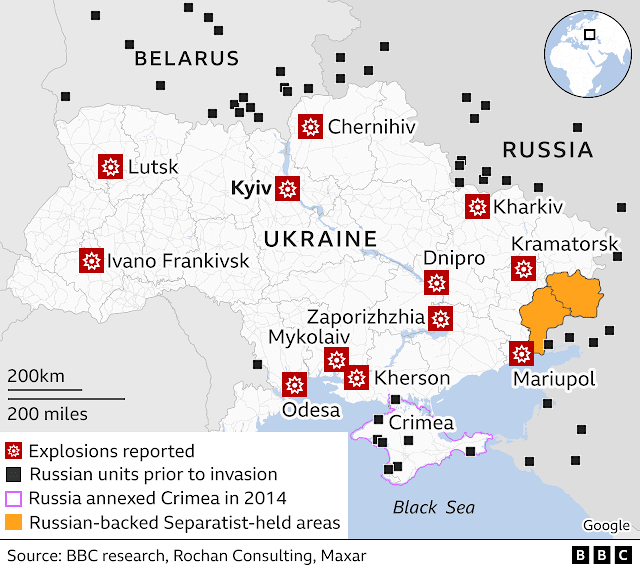ANALYSIS: The Solomon Islands, a Little Known Geopolitical Battleground
Small and isolated in the southern Pacific, the Solomon Islands, with its population of less than a million inhabitants is not a typical example of a nation at the centre of major geopolitical rivalries. Yet as the new, expansive and outward-looking China seeks to extend its influence globally, the Solomon Islands is becoming a battleground between new and historical powers.
A History of Division
Since the age of European colonisation, the Solomon Islands have become used to competing geopolitical influences. In the 19th Century, it was the German and British Empire that split the islands, the British establishing a southern protectorate, whilst the northern islands became colonies of the Germans. In World War One, the northern islands were occupied by Australia at the behest of the British, before becoming under Canberra's administration in the peace settlement. It took less than twenty years for the islands to again become a geopolitical battleground, with the islands witnessing intense and brutal battles between Japanese and allied forces. In the post-war era, the islands achieved their independence, but still remained politically aligned to their former overlords. Now, in the 21st Century, it is Beijing that seeks to draw the Solomon's away from western alignment.
 |
| A map highlighting the proximity of the Solomon Islands to Australia and other Pacific nations. |
Chinese Advances
As China begins its advance towards global superpower status, it has begun to spread its metaphorical foreign policy wings. One key avenue of this comes via investment in strategic areas and nations, as well as the further disruption of Taiwanese foreign relations. In this regard, the Solomon Islands perfectly fits the bill. Until 2019, the Solomon Islands were one of the few nations to maintain official diplomatic relations with the Republic of China (Taiwan) rather than the Peoples Republic of China. In 2019 that changed, with the Solomon Island government allegedly receiving $500 million in exchange for cutting ties with Taiwan. Now, it has been announced that the Solomon Islands is drafting a new security deal with China. The new deal comes in response to widespread rioting across the islands, that stemmed in part from unhappiness at the incumbent governments severing of relations with Taiwan, as well as the growing economic relations with China, which are seen locally as disruptive and exploitative, with the term 'debt trap' often used by opposition parties. These riots targeted Chinese owned business and firms and as such, these riots served as the governments and Beijing's justification for the new security bill.
The framework agreement in many ways replicates the agreement the Solomon Islands have with Australia, which has long ensured the security of the island. Indeed, Australians led a peacekeeping mission in the islands from 2003-2017, whilst deploying security personnel just last year in order to quell the riots. Australia is also the areas largest donor of aid, spending $1.3 billion in development assistance last year, with further billions going towards health, logistics and security on the islands. Yet the new deal seeks to give Chinese authorities the scope to help the Solomon Islands security situation where Australia has historically struggled, despite the money it has invested. China argues that this development merely ensures the protection of its people and its economic interests, whilst the Solomon Islands government can justifiably argue that the deal merely diversifies the list of powers that can come to their aid when they so need it. Both Beijing and the Solomon Islands government have denied there will be a Chinese military base anywhere across the islands.
 |
| Australian peacekeeping forces in the Solomon Islands Image Source: AAP Image. |
The Future of South Pacific Geopolitics
The reality for Australia across the coming century is that China is going to come knocking hard at the door of its opponents. With Canberra tightly aligned to the United States, it will see its interests firmly in Beijing's firing line, with the recent AUKUS deals, only leading to the perception of Australia as an enemy of the Chinese Peoples Republic. Indeed, Australia is undoubtedly losing influence to China in regard to the current government of the Solomon Islands. Nonetheless, the people of the Solomon Islands are hostile and suspicious of Chinese motives, with the opposition movement firmly in favour of Australia and a more western outlook. In many ways, these small islands are a microcosm of the wider geopolitical rivalry playing out across the world between China and the US as well as democratic and authoritarian states. The grander outlook hangs in the balance, but for the Solomon Islands, its future has a geographical tilt that will be hard to ignore entirely. Australia is favoured by the people, with historic, economic, geographical and cultural ties. China on the other hand, is viewed through a suspicious lens, a powerful juggernaut perhaps best kept at arms length. This does not mean economic collaboration will halt, but it will likely remain at that. Equally, the South Pacific is not yet the centre of Chinese attention. For now, Beijing's geopolitical focus remains closer to home, on the South China Sea, the Taiwanese Straits and upon its estranged brothers in Taiwan.


Comments
Post a Comment